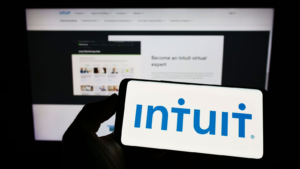Having lower visibility relative to other AI-related stocks isn’t a bad thing. This can lower expectations for investors, reducing risks tied to lower-than-expected growth, relative to the high bar set for so many AI stocks.
With that in mind, let’s dive into three growth stocks I think should be on investors’ radar now more than ever. These companies have proven their ability to thrive regardless of the broader macro tailwinds driving the market higher.
MasterCard (MA)

Recently, credit card giant Mastercard (NYSE:MA) announced its goal to achieve full e-commerce tokenization in Europe by the end of the decade. This initiative aims to phase out manual card entry, enhancing e-commerce safety and accessibility.
Announced in a CNBC fireside chat, all cards issued on its European network will be tokenized, replacing the traditional 16-digit number with a randomly generated token. This change aims to enhance the online payment experience across all platforms and devices.
Tokenization will replace card numbers with secure tokens to reduce fraud, projected to surpass $91 billion by 2028. The company also plans to simplify the integration of “Click to Pay” on merchant sites and assist bank partners in enrolling consumer cards.
MasterCard holds a consensus strong buy rating from analysts, making it a top long-term financial services stock. The company has weathered recent market crashes, maintaining stable revenue, expenses, and a profit margin of around 46% in Q1 2024. For those betting on the long-term transition from cash to credit, this is a top option to consider in any macro evnrionmetn.
Intuit (INTU)

Intuit (NASDAQ:INTU) is among the top software companies in the world, best-known for its suite of tax-related software products. With tax season behind us, many may not be considering this stock as a company with many tailwinds moving forward.
That’s partly because of the recent permanent direct filing program announcement from the IRS, which resulted in a 17% drop in INTU stock. Despite this recent move, over the past five years, this stock has gained 123%, outperforming the index by 37%. The gig economy’s complex tax requirements could still support Intuit despite competition from the IRS’s free program.
The company also plans to acquire technology and staff from Zendrive to boost Karma Drive, its usage-based auto insurance. The deal, closing in Q4 of fiscal year 2024, would bring key Zendrive executives to Credit Karma. This move aimed to enhance accessibility, fairness, and accuracy in auto insurance pricing while offering insights into driving behaviors, according to Credit Karma’s president.
Adobe (ADBE)

With its recent successful earnings report release, Adobe (NYSE:ADBE) posted 10% revenue growth, delighting investors. Analysts anticipated $4.48 in adjusted EPS and $5.4 billion in revenue. Adobe’s Digital Media business, including Creative Cloud subscriptions, achieved net-new annualized recurring revenue of $487 million, surpassing the consensus of $437.4 million.
Adobe’s growth profile remains robust, though analysts’ anticipation of accelerated growth in the latter half of fiscal 2024, driven by AI, surprises. With full-year 2024 revenue guidance centered around $21.45 billion, implying nearly $11 billion in the second half, it marks just a 10% increase from fiscal 2023’s second half.
The company’s 10% growth is commendable, and it somehow shows a significant AI-driven growth surge. These results mirrored the company’s previously-reported half-year growth. Nonetheless, Adobe shareholders can find reassurance in the company’s sustained strength and its dominant position in niche areas of the software market.
On the date of publication, Chris MacDonald did not hold (either directly or indirectly) any positions in the securities mentioned in this article. The opinions expressed in this article are those of the writer, subject to the InvestorPlace.com Publishing Guidelines.
Chris MacDonald’s love for investing led him to pursue an MBA in Finance and take on a number of management roles in corporate finance and venture capital over the past 15 years. His experience as a financial analyst in the past, coupled with his fervor for finding undervalued growth opportunities, contribute to his conservative, long-term investing perspective.
